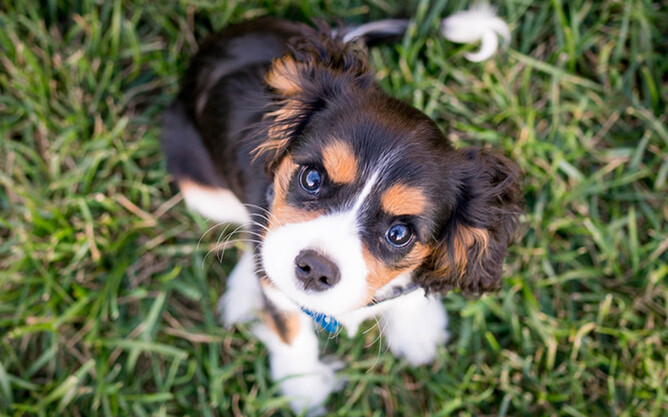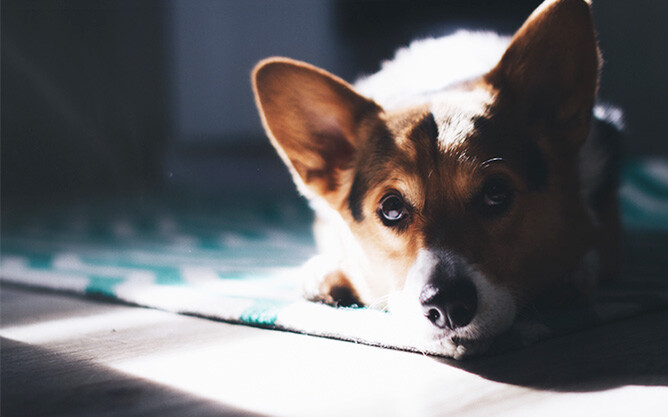Is your new furry friend a rescue dog?
If you’ve just brought home a rescue pup, chances are they’re going to need extra love and care
When it comes to rescue dogs, while you’ll be able to give them the cuddles and kisses they deserve eventually – it is first important to transition them into their new life with extra care and space.
The nature of rescue dogs is that majority of them come from heartbreaking backgrounds. Your new pup may have a history of neglect, general mistreatment or poor animal welfare.
Now that your pup has a new loving home, it's time to show them the care they’ve always deserved
Your job is to help your new pup forget their hardships and get their tails wagging – ready for their new, happy life!
You’ve taken the first step to save your pal and adopt them, now it’s time to be patient and put in the time to make them feel safe and secure, all the while welcoming them into their new home.
How to care for your once frightened dog
Caring for our rescue doggy population can be tough, so it's important to approach your new pal with patience
Welcoming a new dog to your family is exciting, and it's understandable that your instinct will be to smother them with affection. But rescue dogs are a bit different. Let’s see how we can help them adjust, so that in time, we can cuddle them!
Learn your pups history
Getting to know your pup is much easier when you know their story. Understanding their past will ensure you’re aware of the appropriate way to care for them.
Check with your adoption shelter if they know much about your rescue dog and any tips they have to help you care for them. For those that are a mystery, ensure to take extra care and patience.
If you learn that your pup has been mistreated around water, this will be a safe indication to keep your pup away from water (at least until they're comfortable with you). Later, you can slowly introduce them, but never force your dog to do something he/she is clearly uncomfortable with.
All in all, understanding the hardship your new friend has endured will help you structure their new life and avoid any triggers that may cause a frightened dog.
Be patient and give your pup space
Dogs who are victims of poor animal welfare require extra space, patience and respect. When your new pup arrives home, it will be all too tempting to smother them in cuddles, but when it comes to rescue dogs this is a no-go!
Rescue pups can be very frightened dogs – being hugged isn’t something they’re used to (heartbreaking, we know), so this may cause them to feel overwhelmed or threatened.
In the first few months, it's important to show your affection, but also let your dog have space.
A few techniques you could try to soothe your pup without smothering them:
- Speaking with a gentle voice
- Gifting them toys or treats
- Providing them their own space (e.g. a kennel)
The same goes for disciplining your pup – if they exhibit ‘bad’ behaviour, be careful not to yell at them as this will only scare them. Rather, show them what is wrong, or use ‘no’ in a firm voice – once your pup has stopped the bad behaviour, reward them with a treat.
Give your pup the happy, loving home they deserve
Welcoming a rescue dog into your home is a loving, noble thing – but be patient with them. For the first few months with your new pal, keep your home comfortable and quiet, free of overwhelming triggers (e.g. too many people or loud music).
And don’t forget to speak with your pups shelter or your local animal welfare organisation about additional advice on caring for your new addition to the family.



